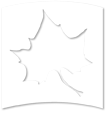Writing Objectives and Outcomes
Developing Objectives and Outcomes
The first steps in designing an assessment plan are to develop educational objectives and student learning outcomes that are aligned with the mission of the program.
Program-level educational objectives (which are sometimes referred to as goals or standards) are broad statements that describe the overarching knowledge, skills, attitudes, and behaviors that the program targets with its educational experiences. They describe the attributes that students should be able to demonstrate at the time of graduation or early in their careers. As a general rule, programs should identify 3 - 6 objectives derived from the mission.
After the educational objectives have been identified, the program should identify several (generally, 3-6) specific, measurable student learning outcomes for each objective. Student learning outcomes are stated in terms of what the student should be able to demonstrate as a result of the learning experiences provided by the program. They are action-oriented and cognitively appropriate for the program level. Student learning outcomes are measurable indicators of the educational objective. Measurable outcomes are typically stated as (one action verb) + (one something). The action verb describes the specific performance required to demonstrate the learning outcome, and the "something" is the focus of the learning experience.
Below are several examples of program-level educational objectives and the related student learning outcomes. There are also a number of excellent online resources on developing objectives and outcomes and providing examples. Links to several of these are provided below. You might also consult the web sites of your disciplinary associations or prominent programs in your field for examples of objectives and outcomes.
Example #1: BA/BS in Criminology and Criminal Justice
Education Objective #4: Students will demonstrate critical thinking skills.
-
SLO 4.1. Students will identify and analyze current issues and practices in criminal justice.
-
SLO 4.2. Students will apply a scientifically supported theoretical premise to current criminal justice issues.
-
SLO 4.3. Students will develop a policy based on scientifically supported research.
-
SLO 4.4. Students will identify best practices in criminal justices.
-
SLO 4.5. Students will analyze current research methodologies.
Example #2: BA/BS in Psychology
Educational Objective #5: Respect for human diversity
-
SLO 5.1. Interact effectively and with sensitivity with people having diverse abilities, backgrounds, and beliefs.
-
SLO 5.2. Explain how personal world view may influence beliefs, values, and interactions with others
-
SLO 5.3. Explain how social and cultural context influences the experience of others
Example #3: Undergraduate Business Core
Educational Objective #5: Students will be competent in ethical decision making.
-
SLO 5.1. Students will be able to explain and defend the ethical framework in which they make business decisions.
-
SLO 5.2. Student will be able to identify parties affected by a business decision, identify how a decision may affect each stakeholder, and arrive at a decision that is (ideally) mutually beneficial or one that minimizes harm to any one party.
Contact
Kelley Woods-Johnson, Ph.D. (she/her)
Director, Assessment & Program Effectiveness
Academic Affairs
Indiana State University
Rankin 243
(812) 237-7975
Kelley.Woods-Johnson@indstate.edu
Meet
I am happy to meet to discuss your assessment needs. Feel free to email, call, or set up a virtual or in-person appointment.
FCTE Office Hours Spring 2024
- Wednesdays, 8:30am-10:30am
Schedule is subject to change. Call or email ahead to verify if desired.

